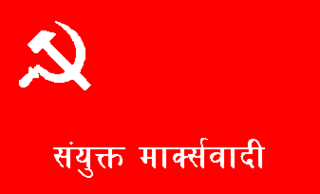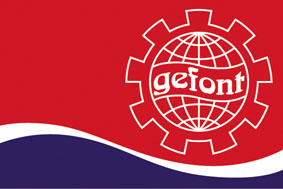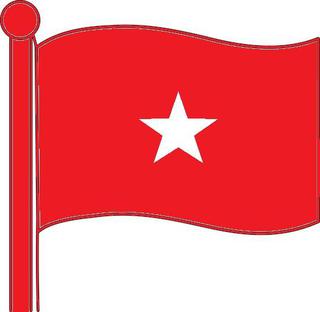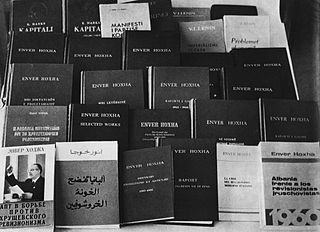External links
| | This article related to an Asian trade union is a stub. You can help Wikipedia by expanding it. |
Nepal Progressive Trade Union Federation | |
| Location | |
|---|---|
Key people | Sunil Manandhar, president |
| Affiliations | WFTU |
Nepal Progressive Trade Union Federation is a central trade union federation in Nepal. It is the labour wing of the Communist Party of Nepal (United Marxist). NPTUF was formed on November 19, 2005, through the unification of the Nepal Trade Union Federation (trade union of Communist Party of Nepal (United)) and Nepal Trade Union Centre (trade union of Communist Party of Nepal (Marxist)). NPTUF is a constituent of the United Trade Union Movement Coordination Committee.
Sunil Manandhar is the president of NPTUF.

Socialism in New Zealand had little traction in early colonial New Zealand but developed as a political movement around the beginning of the 20th century. Much of socialism's early growth was found in the labour movement.
Trade unions in India are registered and file annual returns under the Trade Union Act (1926). Statistics on trade unions are collected annually by the Labour Bureau of the Ministry of Labour, Government of India. As per the latest data, released for 2012, there were 16,154 trade unions which had a combined membership of 9.18 million. The trade union movement in India is largely divided along political lines and follows a pre-Independence pattern of overlapping interactions between political parties and unions. The net result of this type of system is debated as it has both advantages and disadvantages. According to the data submitted by various trade unions to the Ministry of Labour and Employment as part of a survey, INTUC with a combined membership of 33.3 million, has emerged as the largest trade union in India as of 2013.

The Communist Party of Nepal (Marxist) was a Nepalese political party. It was formed on 1 November 1991 by a group of former leaders of the original Communist Party of Nepal (Marxist) that had been expelled from the Communist Party of Nepal (Unified Marxist–Leninist). Initially, it was known as the Communist Party of Nepal (15 September 1949) but took the name Communist Party of Nepal (Marxist) after approximately one year of existence. Prabhunaryan Chaudhary was the chairman of the party.
The Nepal National Teachers Association (NNTA) is an organization of teachers' trade unions in Nepal. It is the second oldest and an influential organization of teachers' association in Nepal. The NNTA was established in 1979 and registered under the educational act of that time, and then become a trade union. Currently, it has more than 7 thousand members. NNTA has established international relation and is the first member to the WCOTP from Nepal, and a charter member to Education International (EI) global union federation. NNTA is also affiliated or has working relationships with the trade unions and professional organizations in Nepal and around the world. NNTA has a close relationship with the Communist Party of Nepal.

All India Central Council of Trade Unions (AICCTU) is a central trade union federation in India. It is politically attached to Communist Party of India (Marxist–Leninist) Liberation. According to provisional statistics from the Ministry of Labour, AICCTU had a membership of 639,962 in 2002.

The Communist Party of Nepal (Marxist) was a political party in Nepal. It was formed through the merger of the Communist Party of Nepal (Manmohan) led by Man Mohan Adhikari and the Communist Party of Nepal (Pushpa Lal) led by Sahana Pradhan in 1987. The Nepal Trade Union Centre was the trade union of CPN (Marxist) and Nepal Progressive Students Union was their students' union.

Communist Party of Nepal (United) was a political party in Nepal. In 1991, after the first general election, through the merger of Communist Party of Nepal (Democratic), Communist Party of Nepal (Burma) and Communist Party of Nepal (Amatya). Both the Burma and Amatya-led factions did however break away from the party soon after the merger. The youth wing of the party was called Nepal National Youth Federation. Its trade union wing was called Nepal Trade Union Federation.

The Communist Party of Nepal (United Marxist) was a political party in Nepal existing from 2005 until 2013.
Nepal Progressive Student Federation is a students organisation in Nepal. It is the students wing of the Communist Party of Nepal.

The General Federation of Nepalese Trade Unions (GEFONT) is a confederation of 20 national trade union federations. It is politically tied to the Communist Party of Nepal. GEFONT declares its goal to be "Socialism for the dignified working-class and prosperous life".

The Nepal Independent Workers Union (NIWU) was a Nepalese trade union formed in 1979 as the labour wing of Communist Party of Nepal (Marxist-Leninist).

The Bolshevik Party of India is an Indian political party in India. The party was founded in 1939. The party had a certain role in the trade union movement in West Bengal and was briefly represented in the state government in 1969. In later years the party has played a negligible role in Indian politics.

Hoxhaism is a variant of anti-revisionist Marxism–Leninism that developed in the late 1970s due to a split in the anti-revisionist movement, appearing after the ideological dispute between the Chinese Communist Party and the Party of Labour of Albania in 1978. The ideology is named after Enver Hoxha, a notable Albanian communist leader, who served as the First Secretary of the Party of Labour.
The International Conference of Marxist–Leninist Parties and Organizations (ICMLPO) was an international grouping of political parties and organizations adhering to Mao Zedong Thought founded in 1998 by the Marxist-Leninist Party of Germany. It was organized by a Joint Coordination Group and met every two or three years. It ceased to exist in 2017.
The Ceylon Trade Union Federation was a national trade union centre in Ceylon/Sri Lanka. CTUF was founded in December 1940, united various unions led by the United Socialist Party. The founding meeting of CTUF was chaired by a Buddhist monk, Ven. Saranankara. Pieter Keuneman served as CTUF president for some time.
Integrated Centre of Trade Unions, Nepal (ICTU) is a confederation of 20 national trade union federations. It is politically tied to the Communist Party of Nepal.